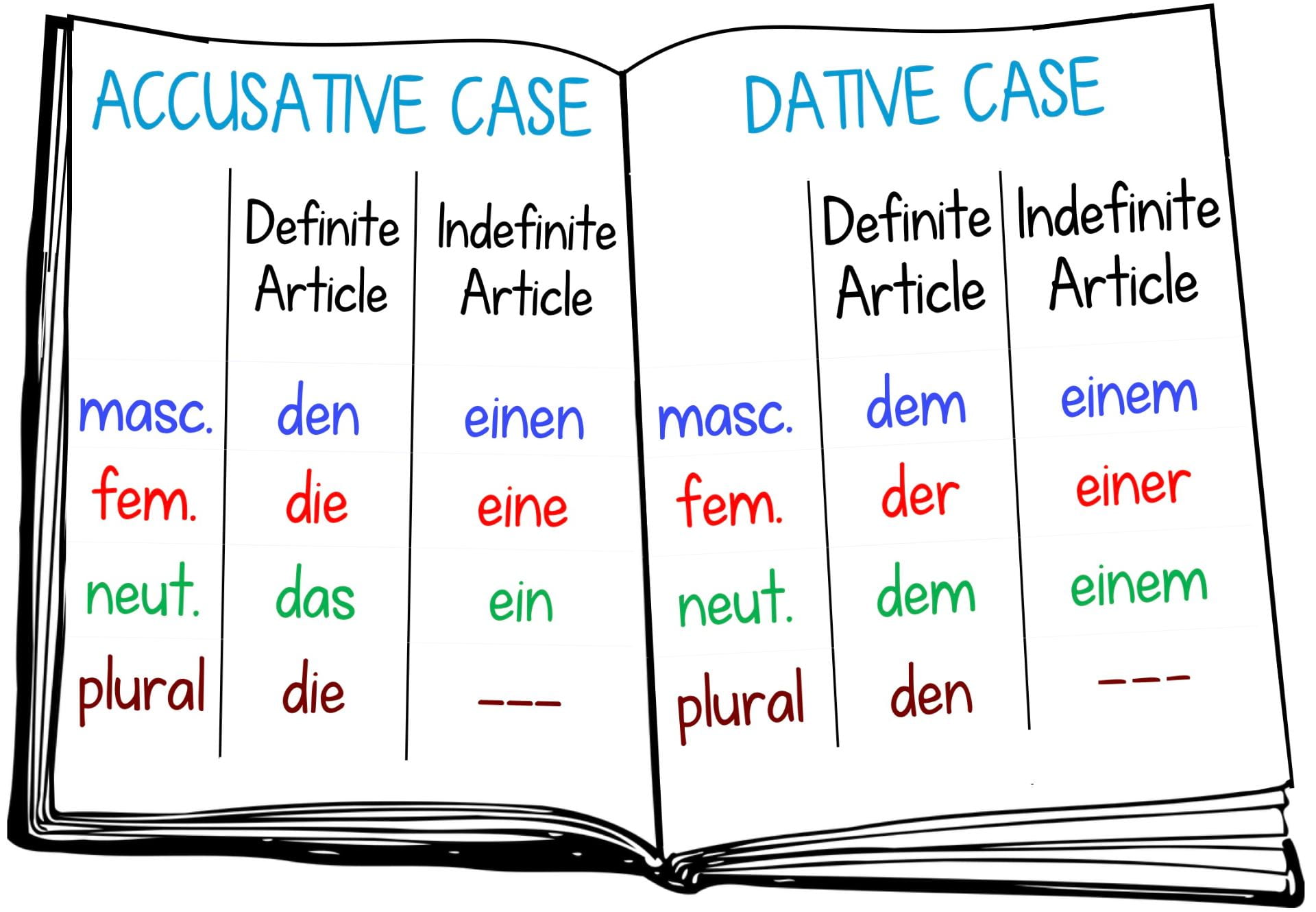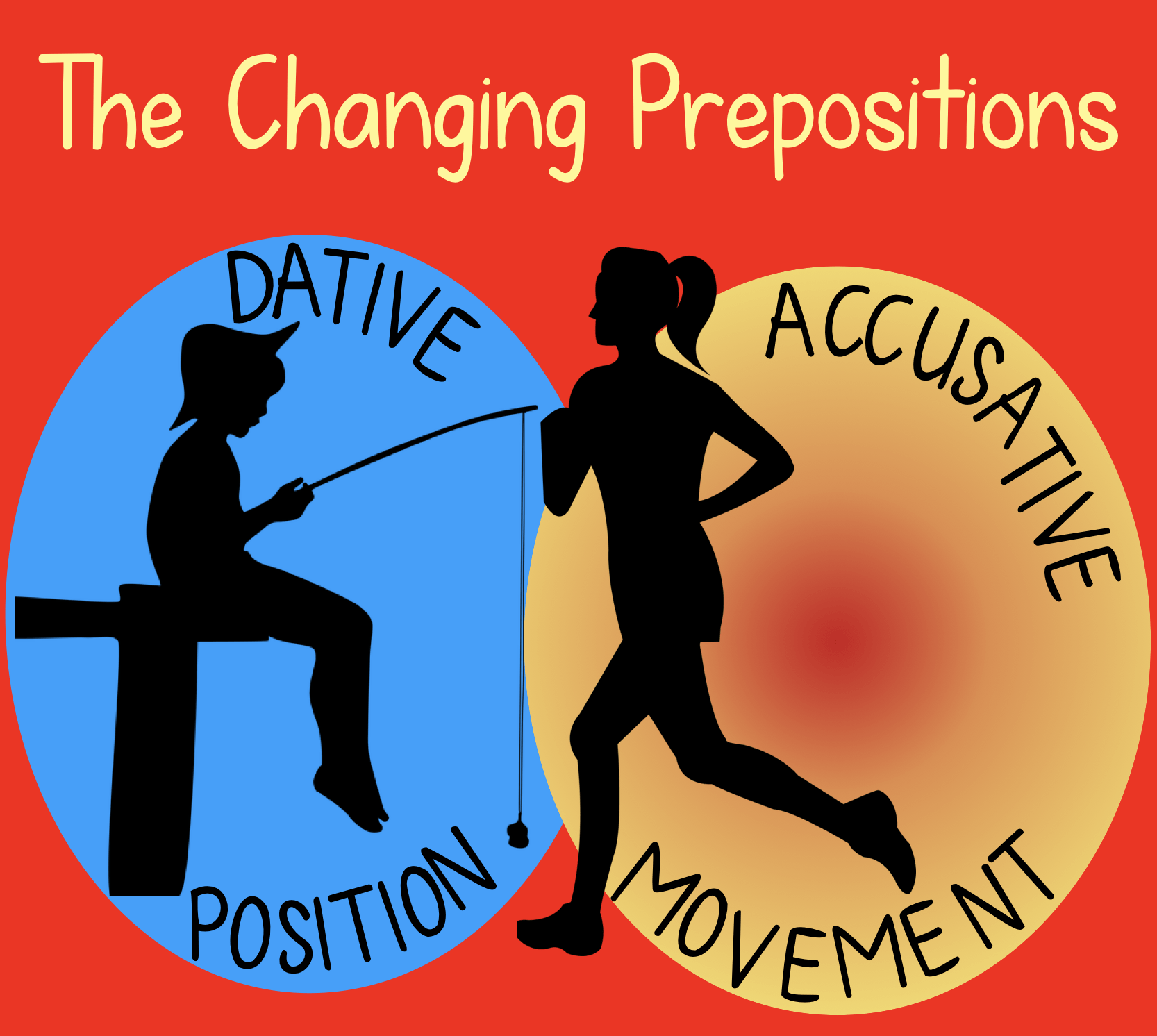Question 2: Identify the Case After a Preposition

Each of the sentences below contains a "changing" preposition. The nouns after the preposition are coloured according to gender and number:
masculine • feminine • neuter • plural
a Wo bist du? Ich bin in meinem Zimmer. →
b Wohin* gehst du? Ich gehe in die Schule. →
c Wo ist dein Hund? Er ist im Garten hinter dem Haus. →
d Was macht ihr heute Abend? Wir gehen ins** Kino. →
e Was macht ihr in den Ferien? Wir fliegen in die USA. →
f Mein Bruder lebt in den USA. →
g Es ist warm. Wollen wir in den Park gehen? →
h Wo ist mein Handy? Es ist auf dem Tisch. →
i In Deutschland sind wir auf einen Weihnachtsmarkt gegangen. →
j Ich habe meine Kindheit auf dem Land verbracht. →
* The word wohin asks to which location someone is going or moving. Answering this question will therefore require the accusative case.
** ins is short for in das
 Question 3: Select the correct article or possessive pronoun in each sentence below.
Question 3: Select the correct article or possessive pronoun in each sentence below.
The case is given before each sentence.
a Accusative: Ich fahre oft mit dem Zug in Innenstadt. → I often go by train into the inner city.
b Dative: Wer sitzt neben Schwester? → Who is sitting next to your sister?
c Dative: Mein Bruder steht zwischen zwei älteren Männern. → My brother is standing between the two old men.
d Dative: Mein Lehrbuch ist in Schultasche. → My textbook is in my schoolbag.
e Accusative: Ich gehe in Zimmer, wenn ich für Tests lernen muss. → I go into my room when I need to revise for tests.
f Dative: In Küche kann ich mich nicht konzentrieren. → I can't concentrate in the kitchen.
g Dative: Er wohnt in der Etage über Großvater. → He lives on the floor above my grandfather.
h Accusative: Meine Großeltern gehen oft in Garten. → My grandparents often go into the garden.
i Accusative: Kannst du die Wäsche auf Leine hängen? → Can you hang the washing on the line?
j Accusative: Ich habe eine Lampe auf Tisch gestellt. → I've put a lamp on the table.